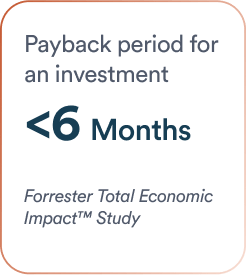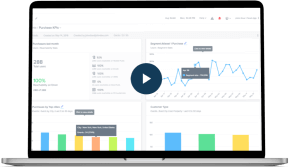By now you might have heard the headlines around developer announcements coming out of this year’s Apple WorldWide Developers Conference: new developer APIs for Augmented Reality, Machine Learning and Drag and Drop, to name just a few. We won’t get into those here, instead we’ll dig a little deeper to highlight 5 lower-profile changes that developers should watch for as they update their apps for the iOS 11 release this Fall.
Hidden Notification Previews
In iOS 10, Apple introduced a setting that allowed users to hide sensitive notification previews from Apple system apps. New in iOS 11, Apple has extended this setting to all apps. In particular, users have both a global setting to manage how notification previews are displayed, as well as individual settings per app. When notification previews are disabled for your app, the system will display “Notification” as the default placeholder text.
Apple has added an API to allow developers to customize this hidden preview placeholder text. To use the API, create a notification category with the hiddenPreviewsBodyPlaceholder parameter set to your custom placeholder text.
let commentCategory = UNNotificationCategory(identifier: "comment-category",
actions: [],
intentIdentifiers: [],
hiddenPreviewsBodyPlaceholder: "Comment" )
Watch the WWDC Session on Notifications for more details. (Safari only)
App Store Rating and Review Changes

The App Store has been fundamentally redesigned in iOS 11. On the ratings and review front, now your current ratings will no longer be reset by default when you submit a new app version. Instead, Apple will leave it up to the developer to decide whether to reset ratings for a new version (via a checkbox in iTunes Connect).
Watch the WWDC session on the App Store for more details. (Safari only)
In addition, a new section in the App Store Review guidelines, points to another change in Apple app rating/review policy. According to Section 1.1.7, Apple will “disallow custom review prompts” in apps.
App Store customer reviews can be an integral part of the app experience, so you should treat customers with respect when responding to their comments. Keep your responses targeted to the user’s comments and do not include personal information, spam, or marketing in your response.
Use the provided API to prompt users to review your app; this functionality allows customers to provide an App Store rating and review without the inconvenience of leaving your app, and we will disallow custom review prompts.
Instead, developers should use the official in-app review API released in iOS 10.3.
Location Permission Changes
In iOS 11, Apple has tightened up its user location privacy handling by allowing users to grant only the “While Using the App” location permission, even if your app does not register itself for that permission. As a result, users will no longer be forced to choose between the “Never” and “Always” location permissions, and Apple is encouraging relevant apps to support a “While Using the App” location user experience.
Watch the WWDC session on Location Technologies for more details. (Safari only)
Password AutoFill
iOS 11 extends Mobile Safari’s password autofill functionality to apps. So, if a user already lets Safari save their username/password to your website in the browser, the username/password will be available in your app as well, as long as iOS knows your app and website are linked.
Watch the WWDC Session on Password AutoFill for more details. (Safari only)
Offload Unused Apps Setting
To help users better manage storage, iOS 11 features an “Offload Unused Apps” setting, which will, remove infrequently used apps, when storage is low; but keep their documents and data on the device. The deleted apps will appear as grayed-out icons on the home screen, and can then be reinstalled with a tap.
Peter 
Peter Wilkniss, SVP of Engineering at CleverTap, focuses on product development and innovation.
Free Customer Engagement Guides
Join our newsletter for actionable tips and proven strategies to grow your business and engage your customers.














































